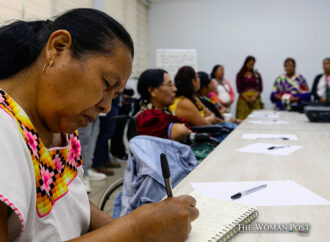Working women strive for perfection in all their roles despite the risks to their physical and mental health from juggling multiple fronts.
For working women in Latin America, taking on a productive role has come at a very high cost while they continue with their traditional roles of caring for the home and their families. According to the study "Women: Lights and Shadows" by market research firm Provokers, which surveyed over 2,107 working women from the region of different backgrounds and ages, the current situation they are experiencing, both professionally and personally, is leading them to face health and stability challenges.
The pressure to excel is added to the equation, a constant concern to fulfill all their roles perfectly, where they can prove to everyone, including themselves, that they can do it all and achieve the best results. Today, Latin American working women acknowledge that they have been winning battles and that they are in a position that puts them on par with men. 81% of women feel equally prepared for the workforce as men and believe they are independent individuals capable of standing on their own.
Read more content like this at: thewomanpost.com
What are the consequences of this success?
Working women in the region confess to feeling overwhelmed. 49% believe that work is currently incompatible with raising children, 41% find it difficult to concentrate on work at times due to their family responsibilities, and 48% struggle to balance household chores, family care, and work.
As a result, women feel they have to juggle the time and responsibilities they have as both mothers and workers. 78% believe that men should assume a greater degree of responsibility in household work than they currently do. The truth is that working women seek equal partners in their families and relationships who do not undermine their achievements in the workplace. However, when this does not happen, it is because they lack trust.
This poses a challenge: they must start recognizing men's capabilities as fathers, homemakers, educators, and caregivers so that there can be exercises of shared responsibility within households and families.
You can also read Is Burnout Affecting The Growth Of Female Entrepreneurship?
Inequality persists Furthermore, in the professional world, women still experience discrimination and inequality in three aspects:
- Motherhood: Being a woman means being able to get pregnant or having children, which involves special permissions. Therefore, 60% believe that employers find it more difficult to work with women because of these permissions.
- Inequality: Only 34% believe that there is equal job opportunity for men and women.
- Remuneration: Only 4 out of 10 say they receive fair and adequate compensation for their work.
The household providers
Moreover, 70% generate income, but only 8% of their earnings are allocated for personal expenses (personal care, clothing, hairdressing, gym, etc.). In other words, 92% is used to cover household expenses and needs.
All of the above, combined with self-imposed pressure and societal demands, have had significant consequences on their physical and emotional health. 53% have been diagnosed with a health condition or disease such as overweight, hypertension, or high cholesterol, and 50% have been diagnosed with a mental health condition, primarily stress (34%), sleep problems (17%), and depression (15%) being the most commonly reported.
Only through coordinated efforts among the government, businesses, society, and within families can women be given their rightful place in both the workplace and the home, free from prejudices (both internal and external), in order to achieve the equity and justice that we often preach but are not seeing reflected in reality.

























Leave a Comment
Your email address will not be published. Required fields are marked with *